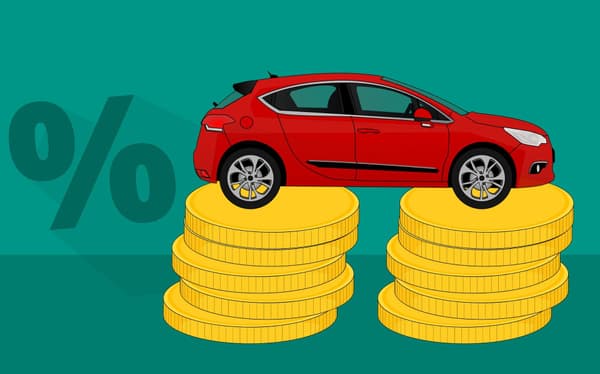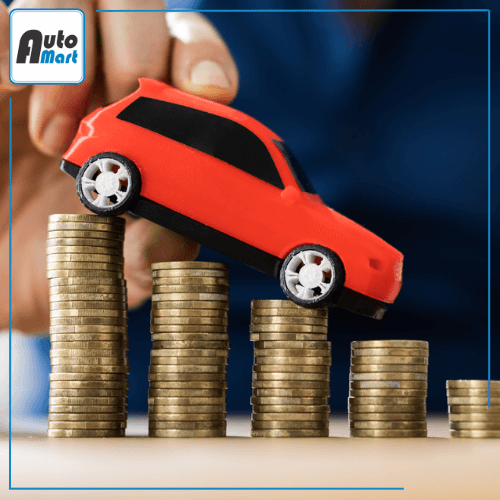If you’re in the market for a new or used vehicle, you’re going to need to be familiar with some of the terms related to the financing process. In today's post, we'll cover basic terminology when it comes to financing a new car so that you’re not left scratching your head at unfamiliar terms. Not sure how it works and what you’ll need to apply? Keep on reading.'
Looking for car finance? Use our vehicle finance calculator and get a broad idea of what your monthly payments may look like.
 Photo By xb100 on freepix
Photo By xb100 on freepix
Deposit
In order to purchase a car, you need to save for the down payment. You will be able to borrow 100% of the car’s total cost, but banks usually require a deposit of 10% of the purchase price. For example, if the cost of your new or second-hand car is R200 000, you would need to save up R20 000 for the deposit.
Interest rate
As plainly as possible, the interest rate is how much it will cost you to borrow money. How does the interest rate affect you? It determines the amount a bank will charge for lending you money, as well as the amount you will need to pay back. Low rates are good for those who have a vehicle finance agreement because it means they won't need to pay as much.
Finance period
The finance period is a major aspect to take into account when shopping for a new car. In general, a longer finance period will lead to a lower monthly instalment but a higher interest rate. This means you may end up paying more in the long run. A shorter payment period will lead to a higher monthly instalment but a lower interest rate. This means you will save more money in the long run.
Balloon payment
A balloon payment is a lump sum at the end of your auto finance contract. So, on the upside, it reduces your monthly payments for the contract period. But be careful, because you will need to pay this full amount in the end. If you have budgeted and saved enough to pay off the outstanding balance, good job. Otherwise, refinancing is an option. This will extend the term for you to pay back the car loan.
Fixed or linked interest rate

Photo By Mohamed Hassan on Pixabay
When you take your vehicle on finance, you'll have a choice between a fixed or variable interest rate. Fixed rates stay the same and your monthly payments will be the same too. Variable rates change with an outside factor: the South African Reserve Bank's prime interest rate. If the rate goes up, so will your monthly payment, but if the rate goes down, you'll benefit from a lower price.
Insurance
Keep in mind that you'll need comprehensive coverage when financing a car, which means more money to consider in your budget. Although it's not necessary, a lender would want assurance if something does happen to the car. With the cheaper monthly payments from financing through a dealership, it's more affordable to get comprehensive coverage. Get affordable insurance quotes on Auto Mart.
How does car financing work?
Buying a car is a big decision and can be an expensive one. If you need to finance your purchase, a financial institution can loan you the money you need to buy the car. In return, you pay the interest and fees for borrowing the money over a specific period of time. Car finance options include banks and ‘buy here, pay here’ dealerships, also known as inhouse financing. If you want to finance a car, you’ll need to shop around then apply for a car loan once you find a vehicle you’re interested in. If you’re approved, you will make monthly payments until the loan is paid off.
When you’re buying a car, one of the most important factors to consider is the monthly payment. Your monthly car loan payment is determined by various factors, including your car's purchase price, the down payment, and interest. The interest affects how much money you'll end up paying for the vehicle and will depend on a few different factors, including whether you have good credit and what type of car you're buying.
What is needed for vehicle finance?
To qualify for finance, you’ll need to present an ID document, proof of income, and proof of address. If you’re self-employed, you’ll need to provide statements from your bank account showing your monthly income over the past few months. The agent will complete an affordability assessment to determine if your monthly repayments will be manageable.
Before you start your application for financing, it's important to understand what your credit score is. If you have a low credit score, there's a good chance that you'll be declined for financing. If you have a high credit score, however, you may qualify for different rates.
 Photo By PabitraKaity on Pixabay
Photo By PabitraKaity on Pixabay
It is vital to listen to the dealer at the time of purchase. They will advise you on your best options for payments, finance terms, interest rates, deposits, and balloon payments.
Now that you’re more familiar with the basic lingo involved in vehicle financing, it's time to cross-check the terms and conditions by reading all of the small print. It’s tedious but necessary. Once you have read through the agreement and are satisfied, you'll be ready to safely take to the open road in your very own car. Looking for a broad estimate of the loan amount you could qualify for? Use the vehicle finance calculator on Auto Mart today.






